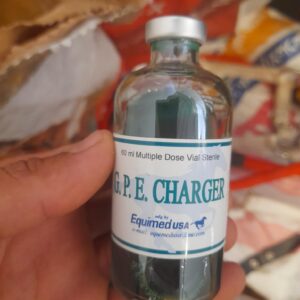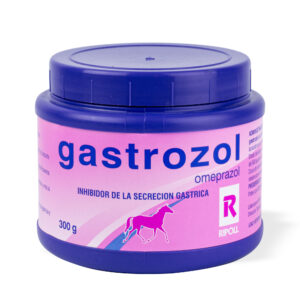Metopirone (Metyrapone): Comprehensive Guide and Uses
In the realm of endocrinology, metyrapone stands out as a significant pharmaceutical agent, particularly due to its role in the diagnosis and treatment of disorders related to the adrenal gland, such as Cushing’s syndrome. The use of metyrapone, also known by its brand name Metopirone, and occasionally referred to as metyrapone or metoprine, has been pivotal in advancing our understanding and management of conditions stemming from cortisol dysregulation. This compound, through its unique metyrapone mechanism of action, offers a window into the complex hormonal interplay that governs stress response and adrenal function, making it an indispensable tool in both clinical and research settings.
The following article will delve into the multifaceted world of metyrapone, covering its uses and indications, dosage and administration practices, and the scientific underpinnings of its mechanism of action. Highlights will include its pivotal role in the metyrapone test, a diagnostic procedure for evaluating the pituitary gland’s function by assessing the levels of ACTH and 11-desoxycortisol, a precursor in corticosterone synthesis. Additionally, discussions will touch on metyrapone side effects, such as CNS depression and hypochloremia, and its application in suppressing adrenal steroid synthesis, providing a thorough understanding of its therapeutic benefits and challenges. Through this exploration, readers will gain comprehensive insights into metyrapone’s crucial role in treating endocrine disorders and its implications for patient care.
What is Metopirone?
Chemical Composition and Structural Formula
Metopirone, also known by its generic name metyrapone, is a chemical compound used primarily as an inhibitor of adrenal corticosteroid synthesis. Its chemical name is 2-methyl-1,2-di-3-pyridyl-1-propanone, and it possesses a molecular weight of 226.28. The compound appears as a white to light amber, fine, crystalline powder and is characterized by a distinctive odor. It demonstrates solubility properties, being sparingly soluble in water but soluble in methanol and chloroform. Metopirone forms water-soluble salts with acids, which can affect its absorption and interaction in the human body 12.
Availability and Dosage Forms
Metopirone is available in the form of 250-mg capsules for oral administration. These capsules are designed to facilitate the delivery of the active substance metyrapone in a controlled manner. The recommended single dose for adult and pediatric patients is 30 mg/kg, not exceeding a maximum of 3 grams, typically administered at midnight. This dosing schedule aligns with the timing for blood sample collection early the following morning, which is crucial for diagnostic accuracy in tests such as the metyrapone test 10.
Inactive Ingredients
The capsules of Metopirone contain several inactive ingredients that contribute to the stability, efficacy, and safety of the medication. These include polyethylene glycol, glycerine, and gelatin, which are common in many pharmaceutical formulations. Additionally, the capsules contain sodium ethyl hydroxybenzoate and sodium propyl hydroxybenzoate as preservatives. Ethyl vanillin and 4-methoxyacetophenone are used to enhance the flavor and smell of the medication, while titanium dioxide and brown ink are used in the capsule’s coating to give it a distinctive appearance 12.
Uses and Indications
Metyrapone, marketed under the brand name Metopirone, is primarily utilized in the medical field for its role in diagnosing and managing conditions related to adrenal gland dysfunction. The drug serves as an inhibitor of the enzyme 11-β hydroxylase, which is crucial in the biosynthesis of cortisol from 11-deoxycortisol. This inhibition results in decreased cortisol production, leading to increased secretion of adrenocorticotropic hormone (ACTH) and other precursors like 11-deoxycortisol and dehydroepiandrosterone (DHEA) 19.
Diagnostic use for adrenal insufficiency
Metyrapone is instrumental in the diagnosis of adrenal insufficiency, a condition characterized by inadequate production of cortisol. The metyrapone test, a standard diagnostic tool, assesses the functionality of the hypothalamic-pituitary-adrenal (HPA) axis by blocking cortisol synthesis. This leads to an increase in ACTH and 11-deoxycortisol levels, which are measured to evaluate pituitary function and adrenal reserve. In cases of adrenal insufficiency, the test reveals an insufficient increase in 11-deoxycortisol, indicating a partial defect in pituitary ACTH secretion 1617.
Other potential uses
Beyond its diagnostic applications, metyrapone has been explored for therapeutic uses, particularly in the treatment of Cushing’s syndrome—a condition characterized by excessive cortisol production. The drug helps manage the symptoms of Cushing’s syndrome by reducing cortisol levels, which, in turn, alleviates associated psychiatric complications such as severe depression. Studies have shown that metyrapone can effectively normalize cortisol levels and significantly improve depressive symptoms in patients with Cushing’s disease 19.
Furthermore, metyrapone is occasionally utilized in the management of aldosterone-induced edema, offering an alternative treatment pathway by inhibiting adrenal corticosteroid synthesis. This pharmacological action not only reduces cortisol and corticosterone production but also leads to an increase in their immediate precursors in the adrenal cortex, which are less effective at suppressing ACTH release. Consequently, this results in elevated levels of these precursors in the plasma and their metabolites in the urine, which are critical markers in diagnostic assays for adrenal gland function 20.
The versatility of metyrapone in both diagnostic and therapeutic contexts underscores its significance in endocrine pharmacology, providing essential insights into adrenal gland pathophysiology and offering a therapeutic avenue for managing complex endocrinological disorders.
Dosage and Administration
Instructions for Single-Dose Tests
For diagnostic purposes, the single-dose test is generally performed on an outpatient basis. The recommended dose for both adult and pediatric patients is 30 mg/kg, not to exceed a maximum of 3 grams of Metopirone. This dose should be administered at midnight, accompanied by milk, yogurt, or a snack to mitigate gastrointestinal irritation. It is crucial to collect the blood sample for the assay early the following morning, typically between 7:30 and 8:00 a.m. Following the collection of the blood sample, a prophylactic dose of glucocorticoid may be considered for patients at high risk of acute adrenal insufficiency 2830.
Instructions for Multiple-Dose Tests
In cases requiring more extensive diagnostic evaluation, such as differential diagnosis of adrenocortical hyperfunction in Cushing’s syndrome, a multiple-dose test may be necessary. For adults, this involves administering 750 mg of Metopirone orally every 4 hours for a total of 6 doses. The initial 24-hour urinary steroid levels are measured before the test to establish baseline values, and the effect of Metopirone is assessed in two consecutive 24-hour urinary samples following administration. The maximum effect on urinary steroid values should be observed within the next 24 hours 25.
For pediatric patients, the dosage recommendation is based on limited data but generally involves administering 15 mg/kg body weight every 4 hours for 6 doses, with a minimum single dose of 250 mg 25.
Special Considerations for Pediatric and Adult Patients
Prior to administering Metopirone for either the single-dose or multiple-dose tests, it is essential to halt any medications affecting pituitary or adrenocortical function, in line with the half-life of these drugs—typically at least 5 half-lives to prevent interference with the test results. Additionally, the patient’s ability to respond to exogenous ACTH should be assessed before employing Metopirone as a diagnostic tool 2830.
For pediatric applications, the dosages are adjusted according to body weight and the specific needs of the child, ensuring careful monitoring and adjustment based on the individual’s response and tolerability 25. For elderly patients, no special dosage adjustments are generally required, but clinical monitoring is advised to tailor the therapy according to the individual’s response and any concurrent medical conditions 25.
In all cases, Metopirone should be taken with food or dairy products to reduce gastrointestinal side effects and enhance absorption. This administration method is crucial for maintaining the effectiveness of the diagnostic testing and ensuring patient comfort and safety during the process 2526.
Mechanism of Action
Inhibition of Adrenal Steroid Synthesis
Metopirone, or metyrapone, exerts its pharmacological effects primarily by inhibiting the 11-ß-hydroxylation reaction in the adrenal cortex. This specific inhibition halts the conversion of 11-deoxycortisol into cortisol, the primary stress hormone. Consequently, the production of cortisol and corticosterone is significantly reduced. The absence of cortisol’s strong inhibitory feedback on the pituitary gland leads to an increase in the production of adrenocorticotropic hormone (ACTH) 3435. This elevation in ACTH promotes the adrenal cortex to secrete higher levels of 11-deoxycortisol and desoxycorticosterone, which are comparatively weak in suppressing ACTH release. As a result, there is a notable rise in the levels of these precursors in the plasma and their metabolites in the urine, which are essential markers in adrenal function tests 3435.
Furthermore, the inhibition of aldosterone synthesis by metyrapone may result in mild natriuresis, helping in the management of conditions associated with aldosterone 3435. The effectiveness of metyrapone in reducing the levels of potent corticosteroids and its impact on adrenal steroid synthesis underscores its utility in clinical diagnostics and therapeutic applications.
Pharmacodynamics and Pharmacokinetics
Metopirone is rapidly absorbed when administered orally, with peak plasma concentrations typically achieved within one hour. This rapid absorption facilitates the timely onset of its pharmacological action, crucial for both diagnostic and therapeutic uses 3435. Following administration, metyrapone undergoes a major biotransformation where the ketone group is reduced to form metyrapol, an active alcohol metabolite. Both metyrapone and are subsequently conjugated with glucuronide, aiding in their excretion 3435.
The pharmacokinetics of metyrapone reveal a half-life of approximately 1.9 hours, indicating a relatively quick clearance from the plasma. This property is particularly beneficial in clinical settings where control over drug levels and effects is necessary 3435. The rapid elimination and the transformation into active metabolites make metyrapone a suitable agent for short-term modulation of corticosteroid levels, such as in the metyrapone test, where urinary metabolites like 17-hydroxycorticosteroids are measured to assess pituitary ACTH responsiveness 3435.
The detailed understanding of metyrapone’s mechanism of action, combined with its pharmacodynamic and pharmacokinetic profiles, provides a comprehensive basis for its use in medical practice, particularly in the diagnosis and management of disorders involving excess corticosteroids.
Conclusion
Through a detailed exploration of metyrapone’s role in endocrinology, this article has elucidated the drug’s significance in diagnosing and managing adrenal gland disorders, notably Cushing’s syndrome and adrenal insufficiency. By inhibiting adrenal corticosteroid synthesis, metyrapone serves as a critical tool in both clinical and research settings, offering insights into the hormonal balances that govern our stress responses and adrenal functions. Its unique mechanism of action provides a therapeutic pathway for conditions characterized by cortisol dysregulation, underlining the importance of understanding these complex biochemical interactions for effective patient care.
The metyrapone test, highlighted for its diagnostic application, exemplifies the practical utility of this drug in assessing pituitary gland functionality and adrenal reserve. While the potential side effects underscore the need for careful administration and monitoring, metyrapone’s versatility in both diagnostic and therapeutic contexts signifies its enduring value in endocrine pharmacology. As we move forward, the continued study and application of metyrapone will likely reveal further implications for managing endocrine disorders, solidifying its place in the arsenal of tools available to healthcare professionals in this specialized field.
FAQs
1. What medical conditions is metyrapone prescribed for? Metyrapone, also known as Metopirone, is primarily used to diagnose problems associated with the adrenal glands, which are situated near the kidneys. These glands produce cortisol, a steroid that aids the body in responding to stress or illness.
2. How is the metyrapone stimulation test utilized in medical diagnostics? The metyrapone stimulation test is employed to determine the cause of secondary hypercortisolism. It is particularly useful in identifying pituitary-based hypercortisolism, also known as Cushing’s disease, by causing an abnormal increase in 11-deoxycortisol (11-S) levels in affected patients.
3. What role does metyrapone play in the treatment of Cushing’s syndrome? In the treatment of Cushing’s Disease, metyrapone is known for its rapid effectiveness, capable of reducing cortisol levels within hours after administration. The required dosage to suppress cortisol production varies significantly among patients, ranging from 500 mg to 6 grams daily.
4. What is the action mechanism of metyrapone in the body? Metyrapone functions by reversibly inhibiting the enzyme 11β-hydroxylase, which is crucial in cortisol synthesis. This blockage leads to enhanced secretion of adrenocorticotropic hormone (ACTH), subsequently increasing the levels of plasma 11-deoxycortisol.




Reviews
There are no reviews yet.